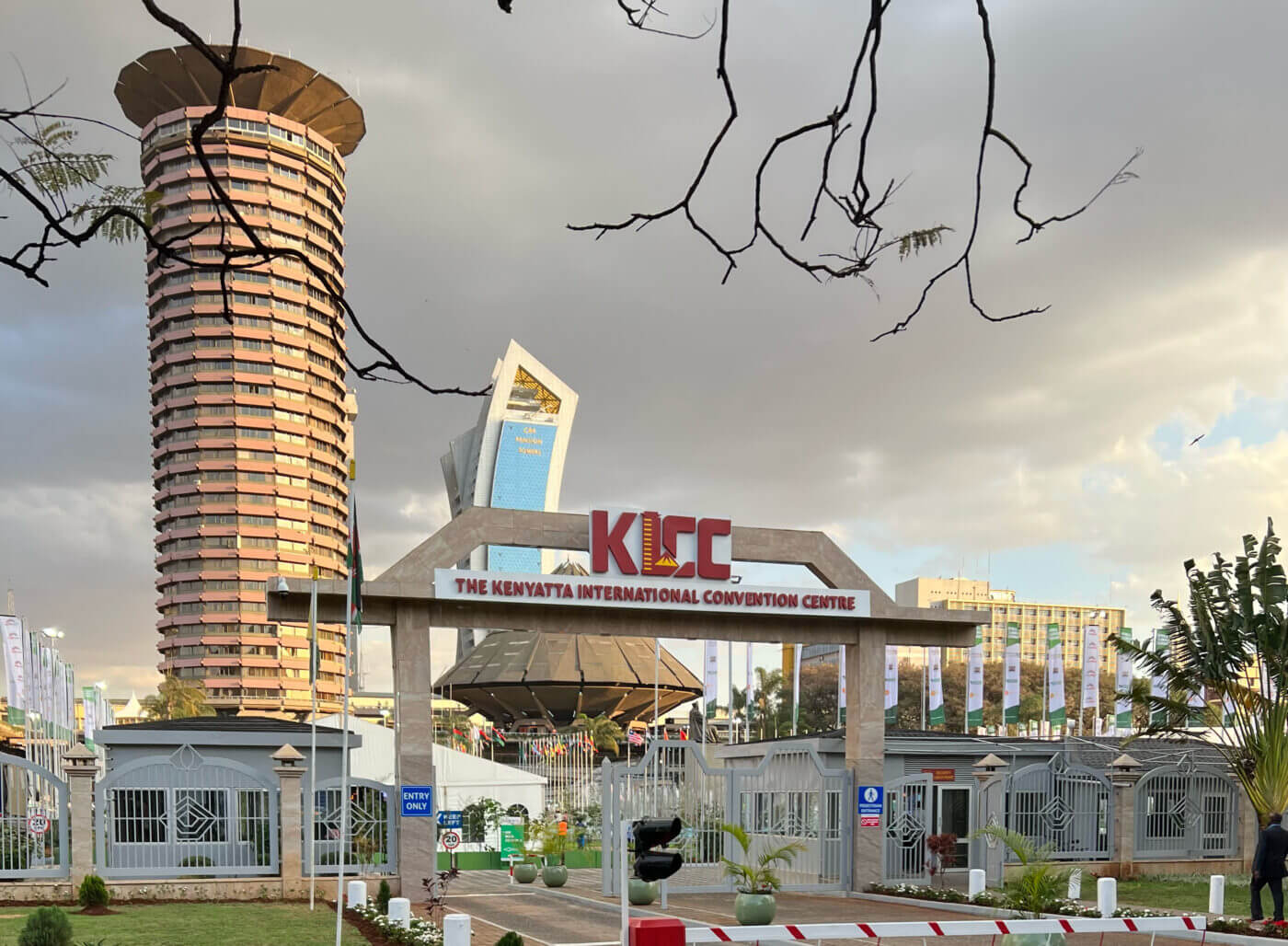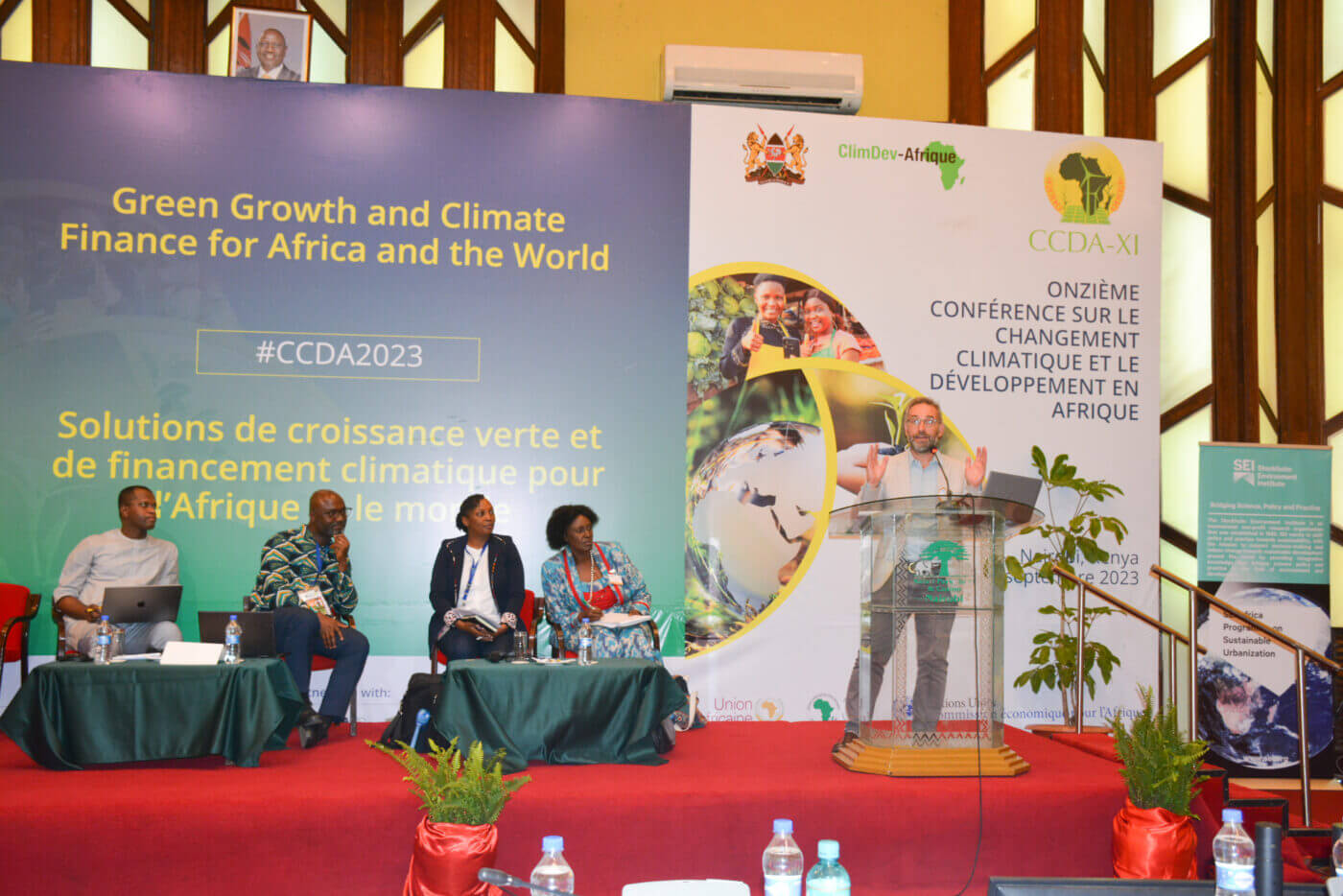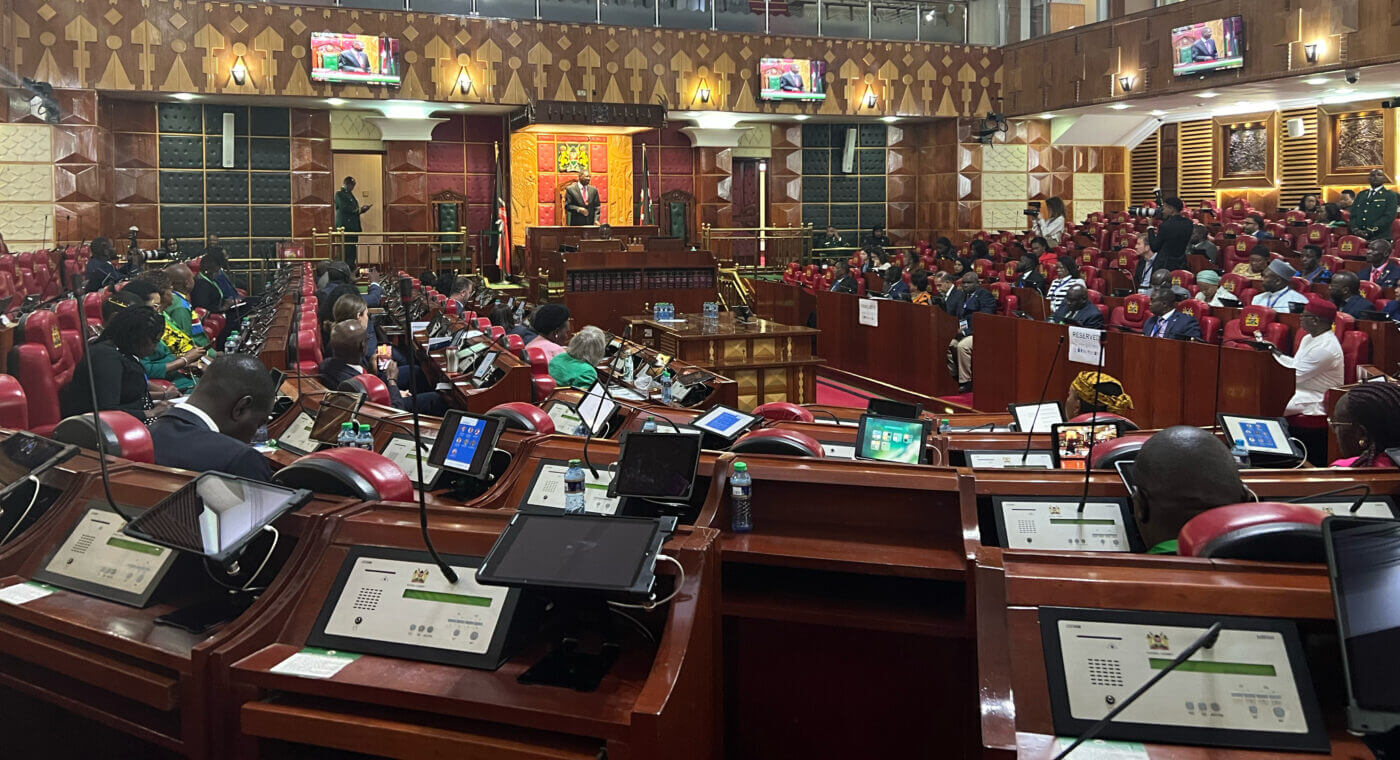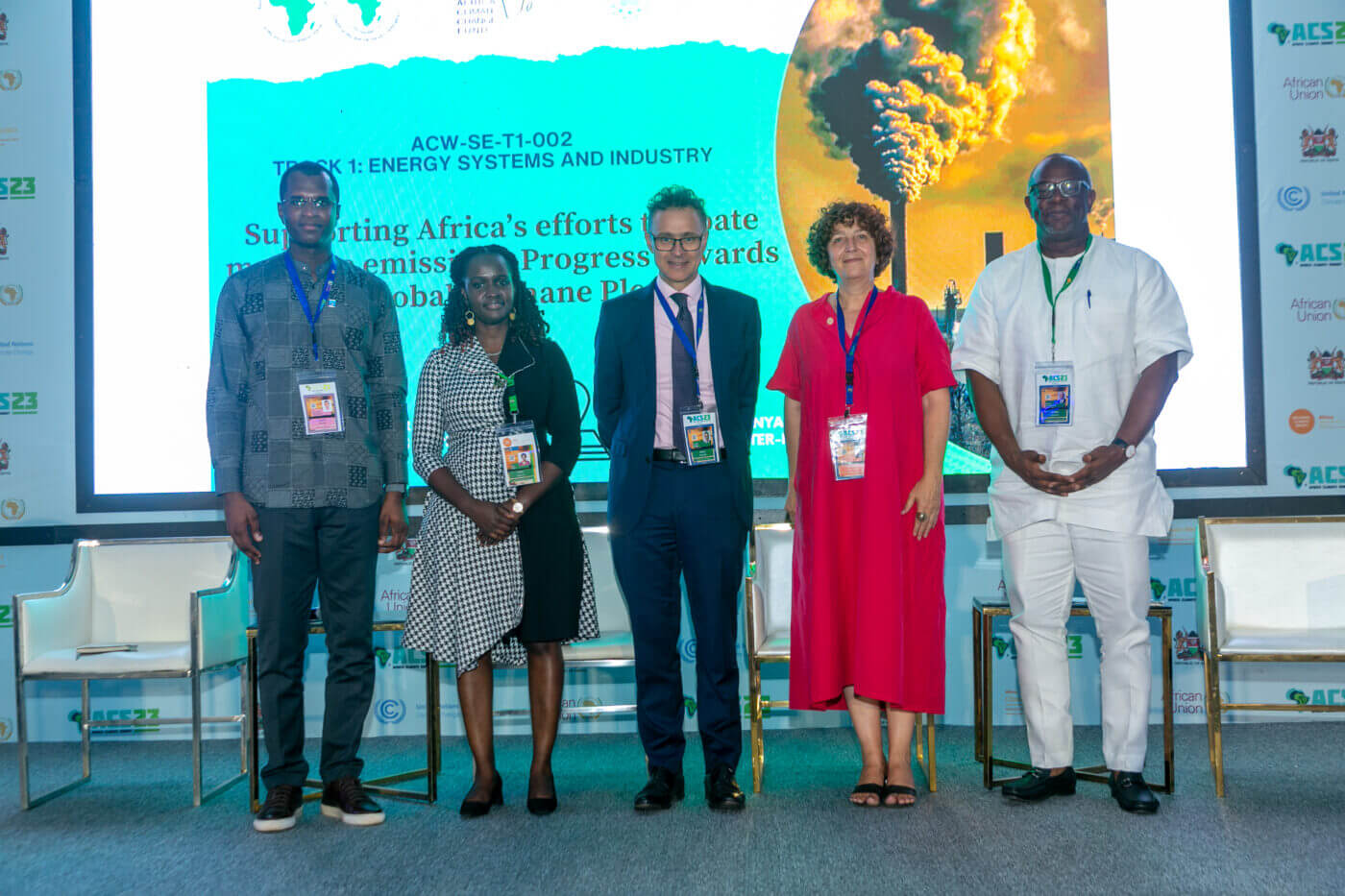
Africa Climate Week 2023: Elevating and strengthening CATF’s methane emissions mitigation work in Africa
As much as climate change threatens our survival globally, Africa is often classified as the most vulnerable continent on Earth. This vulnerability is attributed to several factors including a weak capacity for adaptation, overdependence on local ecosystems for livelihoods, and less advanced agricultural production systems. Moreover, the risks posed by climate change on food security, agricultural production, water resources, and ecosystem services continually impede the potential for sustainable development in Africa. Therefore, managing these risks would entail the integration of climate adaptation and mitigation strategies across Africa’s socioeconomic sectors.
The 2023 Africa Climate Week (ACW) and Africa Climate Summit (ACS) — a first-of-its-kind event hosted by the Government of Kenya and the African Union (AU) — brought together global leaders, intergovernmental organizations, regional economic communities, UN agencies, the private sector, civil society organizations, local communities, indigenous peoples, farmer organizations, academia, women, and youth, to highlight global climate action and discuss Africa’s climate challenges with a view to formulating sustainable solutions.
So, what happened?
- At ACS, African leaders expressed concerns that Africa was not historically responsible for global warming but is currently bearing the greatest brunt of its effects on lives, livelihoods, and economics across the continent.
- While these leaders agreed that Africa has the potential and ambition to play a key role in global climate efforts, the scale of financing needed to unlock Africa’s climate growth is beyond the borrowing ability of national balance sheets.
- It is in this context that the Nairobi Declaration on Climate Change was delivered at the close of the ACS, focusing on how to mobilize financing to adapt to increasingly extreme weather, develop renewable energy, and conserve natural resources.
Clean Air Task Force and methane mitigation activities in Africa
ACW also hosted several side events aimed at discussing viable opportunities for mitigating methane emissions in Africa — by slashing global emissions and restricting near-term global warming — to meet national development objectives and achieve the Global Methane Pledge (GMP). Clean Air Task Force (CATF) experts had the privilege of participating in a number of these events.
Prior to the official commencement of ACS, CATF’s Policy Manager for Africa, Mohammed Dahiru Aminu, took part as a panelist at the Africa Climate Science Symposium. The event was part of the 11th Conference on Climate Change and Development in Africa, with a focus on “Addressing Short-Lived Climate Pollutants (SLCPs) and non-CO2 emissions in Africa.” Aminu was called upon to make a presentation on “Managing SLCPs and non-CO2 emissions in the context of energy transitions in Africa.” The presentation highlighted all SLCP abatement efforts conducted by CATF in the energy sector in Africa — with particular emphasis on CATF’s work in Nigeria and Ghana.

Aminu discussed the potential for zero-carbon fuels such as hydrogen and ammonia, and the critical role of natural gas as a transition fuel, drawing examples from Nigeria’s Net Zero pathway. Aminu also discussed the need for collaboration and sharing of resources and ideas between the Global North and Global South as a critical means to inform decision making on green investments. To achieve Sustainable Energy for All, Aminu noted the need to robustly enhance multi-stakeholder partnerships between governments, the private sector, and civil society organizations to harness sustainable energy, encourage growth and help the environment.
CATF’s Methane Team was also invited by Kenyan Senator Hamida Kibwana to take part at the Parliamentarians’ Dialogue to forge parliamentary pathways for effective climate action. The aim of the Dialogue was to meet leading African parliamentarians responsible for climate action in their respective parliaments to deliberate on the role of parliaments in achieving the outcomes of the ACS. The outcome of the Dialogue will culminate in the adoption of a statement by parliamentarians presented at the ACS. The participation was opened to African parliamentarians and partner organizations that have a keen interest in the work of parliaments.

CATF was also invited as a panelist at an event organized by the Africa Development Bank (AfDB), Global Methane Hub (GMH), Climate and Clean Air Coalition (CCAC), U.S. Agency for International Development (USAID), and U.S. State Department to deliberate on “Supporting Africa’s efforts to abate methane emissions – progress towards the Global Methane Pledge.” The panel focused on understanding regional perspectives on financing the energy transition – from channeling finance flows to enhancing financial readiness for low emissions and climate-resilient development to support the implementation of the GMP.

Aminu, who was on the panel, also partook in the discussion to understand how AfDB projects could contribute to methane emissions reductions in Regional Member Countries, considering that the U.S. Government has pledged a $5 million grant to AfDB’s Africa Climate Change Fund (ACCF) as a support for methane emissions abatement across Africa. The funding will be used for a wide range of activities covering low carbon growth and climate resilience through the creation of a dedicated pillar of activities to support methane abatement, including working with countries to encourage the inclusion of methane in their NDCs.
Conclusions
In general, ACW was a significant event that touched on many progresses made on several issues including identifying areas for climate action priorities in Africa. These progresses not only touched on carbon dioxide as a significant contributor to global climate change, but also methane as an SLCP that is responsible for at least one-quarter of global warming. ACW further elevated the conversation on methane which has remained far less prominent than carbon dioxide in the formulation of climate policy, especially in Africa. It is hoped that in the future, there will be more avenues to highlight the efforts being made by respective governments and corporate entities in reducing methane emissions across different sectors.




